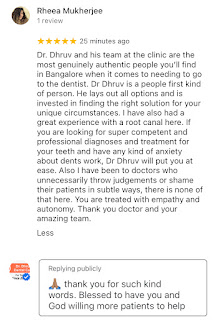Masterstroke: Interdisciplinary Team
Stroke: When blood flow to the brain is reduced or interrupted, brain cells can begin to die if not treated promptly. Prevention includes maintaining a healthy lifestyle, taking clot prevention medication, and managing medical conditions effectively. Check ChatGPT for more information: signs, symptoms, etc. However, take it with a pinch of salt—always verify the information.
Reduce Risk of Stroke by Preventing Gum Disease: Preventive Good Oral Health Blog:
https://www.dentalhealth.org/news/gum-disease-doubles-stroke-risk-according-to-new-study
Dental Management in Stroke Patients:
- No treatment should be conducted during the first six months following a stroke, except for emergencies, which must be handled with extreme care.
- Post six months, management of anticoagulant medications should be done in consultation with a neurologist.
- Dental treatment is advised only if absolutely necessary after myocardial infarction or cancer. Extreme caution is needed as another stroke can occur at any time; treatment is best carried out in a hospital dental setup.
Case Studies:
- Connections between dental and periodontal lesions and stroke have been documented.
Reference:
https://citeseerx.ist.psu.edu/document?repid=rep1&type=pdf&doi=22342fe1b24e4fc28b27e3038b58f0dc3aee5b80 - Calcified Atheroma of Carotid Artery in elderly or diabetic patients can sometimes reveal stroke risks in OPG (image enclosed).
Reference:
https://www.sciencedirect.com/science/article/pii/S2666667724000825
Appointment Guidelines:
- Timing: Prefer morning hours to minimize stress. By afternoon, ideally latest so to begin monitoring for approximately 8 hours after breakfast or lunch to proceed with treatment effectively.
- Accessibility: Ensure the patient is comfortably seated, with the airway kept free. Assistance should be provided for disabled individuals.
- Speech Difficulties: Address these challenges with patience and alternatives if needed.
- Hygiene Recommendations:
- Electric toothbrush, water flosser irrigation, and mouthwash.
- Adapt techniques for one-handed use or accept help from others.
- Prosthodontics: Fixed prostheses are advised over removable dentures, as the latter can be difficult to insert and remove.
Risk Factors:
- Beyond gum disease, other risks include chronic heavy smoking, alcoholism, obesity, etc.
- Ischemia significantly impacts local dental, periodontal, vascular, and nervous systems, which are frequently affected in stroke patients.
References to Neurological Conditions:
- Parkinson’s disease patients have a 20% lower risk of dental vascular complications, and Alzheimer’s patients a 30% lower risk (as per the second reference).
- Endocarditis and necessary precautions for cerebrovascular or cardiac disease with or without stents are critical (previous Dil blog).
Call for Multidisciplinary Collaboration:
- Multidisciplinary team meetings and conversations before treatment are often absent in the preparation process for medical and dental patients in India. So, literature studies can be done
- Implementing such measures is crucial for better therapeutic success, especially for patients with multiple conditions. (as told in previous Wow blog too) Sometimes, global scientific collaborations bring together diverse expertise, fostering innovation and driving groundbreaking advancements that benefit humanity. Disability has a high economic impact, making prevention crucial.




Comments
Post a Comment